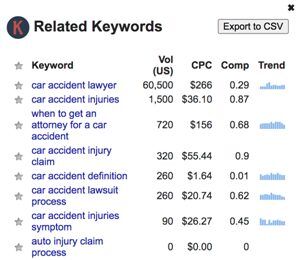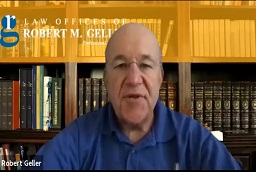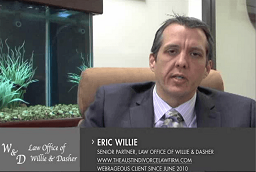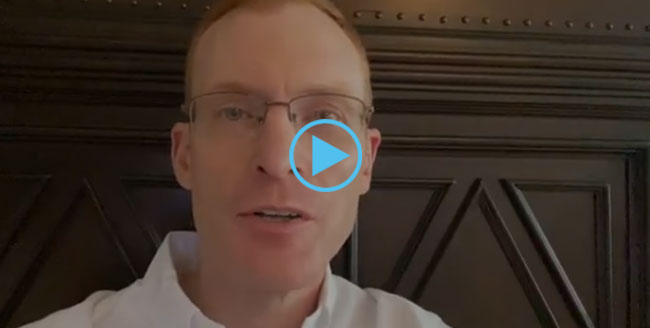What would you do if you found that the keywords you picked for your law firm’s PPC campaign have the status “low volume?” Would you proceed? Create another campaign? Reach out for help? If you’re unfamiliar with the volume side of keyword searches, chances are that you would put the effort in the wrong place.

(Pixabay / 27707)
The truth is that some niches just don’t receive a significant number of search queries, particularly in the legal industry where the audience is tightly defined. In many Google Ads campaigns, you could be running unproven ads on keywords with fewer than 100 searches a month. In fact, your ads may not even show until the volume projections for their keywords increase above a specific threshold.
Fortunately, there are ways to avoid low volume keywords. With the help of a few techniques, you can address low search volume in your campaign and improve your ROI. But before we list the methods for managing low traffic search phrases, let’s cover a few basics.
What Exactly Are Low Volume Keywords?
Low volume keywords refer to phrases that attract minimal search traffic on Google. That’s because they have no to very little search history and are often deemed as irrelevant to search engine users. Phrases that commonly get low traffic include new, branded terms and unpopular, long-tail keywords.
Some other reasons for low search volume include:
- Restrictive match types (you’re using exact match keywords)
- Seasonal keywords (you’re trying to advertise in the wrong season)
- Irrelevant keywords (you’re bidding on phrases that don’t address your customers’ questions)
To know if the keywords you chose have a low search volume, upload them into the Google Ads keyword planner tool. This will give you an idea of volume projects, as well as inform decisions about potential monthly spend or impressions for your keyword group.
Keywords reported as having low or no search volume are unlikely to trigger ads until the search traffic for them increases over time. So, if you’re relying on these keywords to generate clicks, you may not get the best results and fall behind the competition. The good news is that there are some proven techniques you can implement to prevent low search volume.
How Can I Avoid Low Volume Keywords?
If most of your keywords are coming under the “low search volume” status, consider taking the following steps:

Need Google Ads Management Help?
Free Google Ads account review for
qualified clients
Almost 20 years experience
1. Change Match Type to Broad Match
Long keywords in phrase match and exact match formats are a common cause of low search volume. This is because the probability of people searching for different variations of phrases with 5-6 words is quite low. The solution to this is to change the keyword match type. Search up what match type is currently selected for your main keyword and change it to “Broad Match Modifier.” After that, put “+” in between the individual words of the long-tail phrase.
Broad Match Modifier tells Google to account for close variations of your chosen keywords. As a result, your ads are triggered by long phrases based on singular/plural, stemming, accents, misspellings, and abbreviations.
Let’s say you’re in the personal injury space and help victims of slip and fall injuries get compensation. You create the following keyword set to display ads for how you expect someone to search for a business like yours:
- Slip and fall injury lawyer
- Slip and fall injury lawyer near me
- Slip and fall injury lawyer local
- Slip and fall injury lawyer contact
If you choose Broad Match Modifier as the match type for the first, it will capture any searches related to it as well as the ones that the remaining keywords might attract. Essentially, the last three keywords are likely the ones flagged for low keyword volume, so using Broad Match Modifier helps you eliminate inefficiencies while covering the searches that might be important for your business.
2. Raise Awareness
If you have just launched a new company and want to trigger ads for branded keywords, your campaign will likely have a low search volume. Why? Because people won’t search for something that they’re unfamiliar with. Improving search volume for these keywords isn’t a short-term process, but with the right strategies, you can make people aware of your firm so that they are searching for it on Google.
You can increase brand awareness by focusing on press releases, social media or content marketing in the meantime. Once you spread the word about your firm, people will start to become familiar with your new brand or service. The domino effect of this is the rise in search volume for those keywords that previously had a low search volume.
3. Identify New Keywords
Another smart tactic is to identify new keywords that are similar to your low volume ones but have a higher search volume and similar intent. We recommend using the Google Ads keyword tool and Keywords Everywhere to discover and analyze fresh keywords for your PPC campaign.
When using these tools, you’ll notice that many of the suggested keywords are long-tail phrases. Make sure to pick the ones that have a high volume and use the Broad Match Modifier technique to cover searches for the rest.

For example, if you’re a law firm targeting people who’ve been in an auto accident, you can pick keywords that have a search volume of 500 monthly searches or above. Any keyword below 500 monthly searches can create problems for your campaign.
4. Expand Your Geographical Targeting
As the last step, you can try expanding the geographical reach of your campaign if your firm has a flexible service area. In many instances, taking this step will increase the search volume enough to trigger your ads. For instance, if you’re targeting people in Jersey City, New Jersey, you may expand your targeting to include people in Hoboken, New Jersey to see if it has a positive impact on your keyword volume.
If you try these steps but still need more oomph for your campaign, let Webrageous help. We don’t just specialize in pay-per-click management; we specialize in PPC management for attorneys. Webrageous knows how to solve low keyword volume issues, and that translates to higher traffic and conversions for you with much less hassle.



















